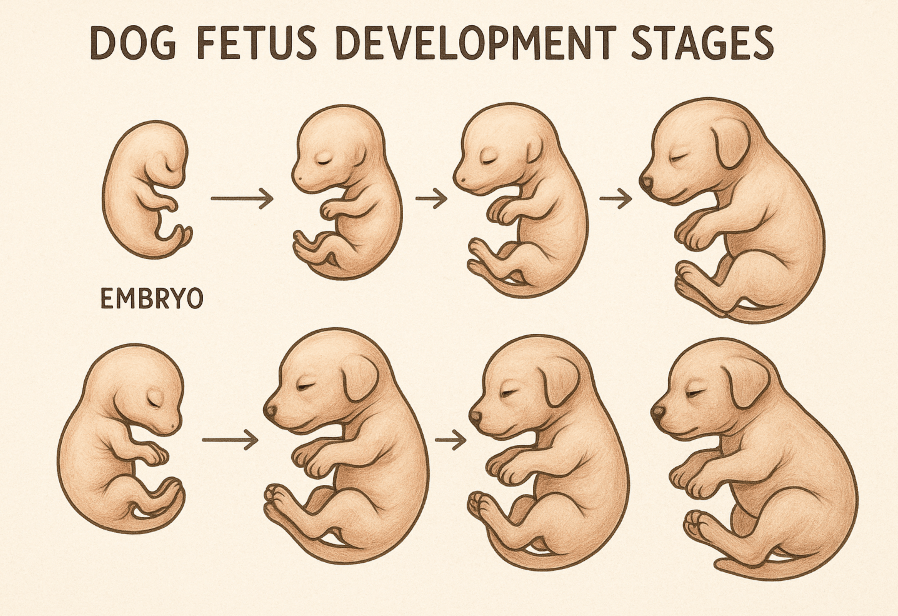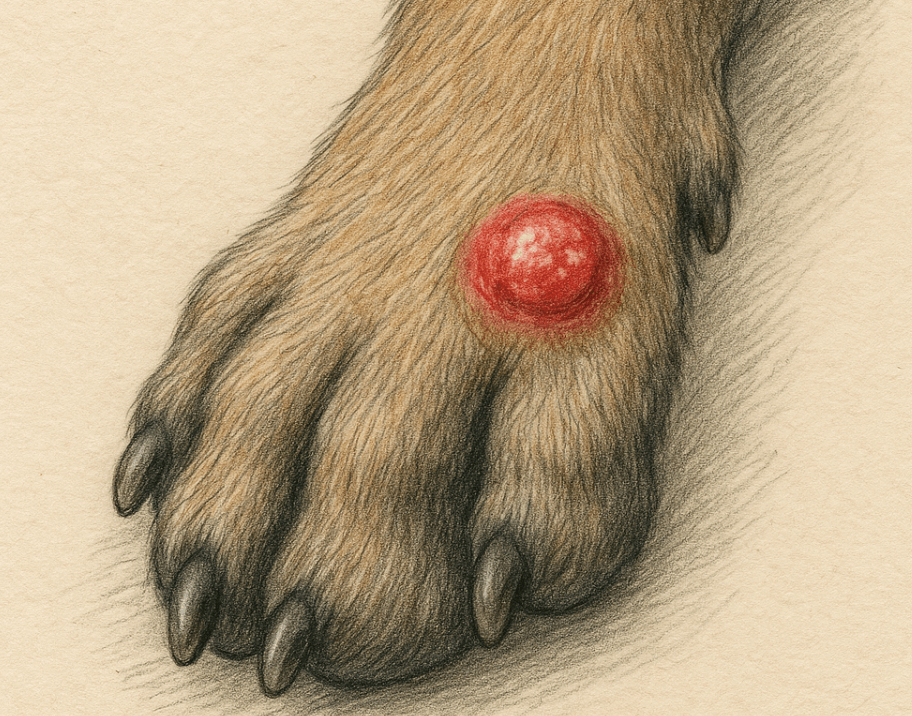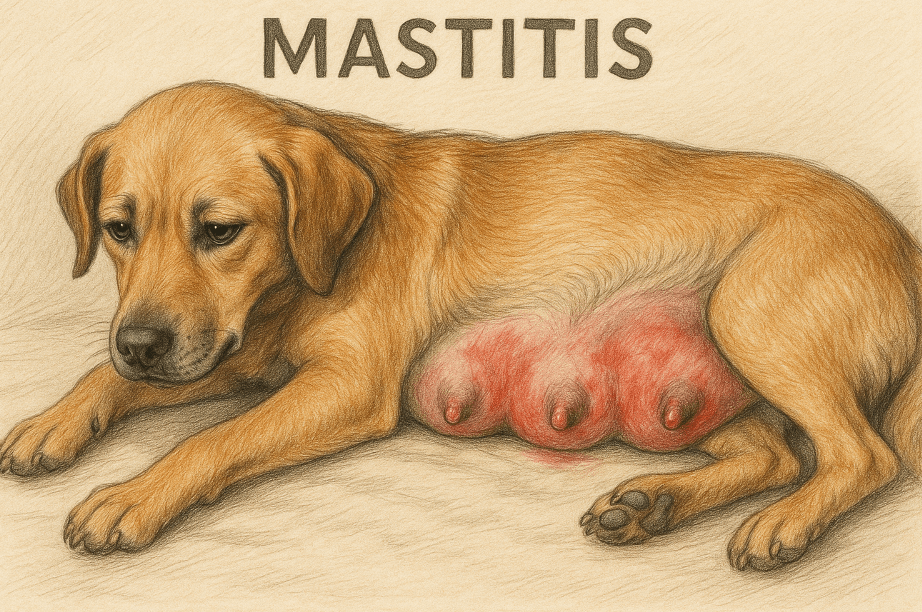Dog Fetus Development Stages: A Journey of Life and Growth
The miracle of life is a fascinating process, and understanding the stages of dog fetus development can deepen your appreciation for the incredible journey from conception to birth. Whether you’re a breeder, a curious pet owner, or someone interested in canine biology, knowing how a puppy develops inside the womb is both educational and awe-inspiring. The gestation period for dogs typically lasts around 58 to 68 days, during which the tiny embryos transform into fully formed puppies ready to enter the world. In this blog post, we’ll explore each stage of dog fetus development, the changes that occur, and what you can expect during this remarkable process.
Key Stages of Dog Fetus Development
The development of a dog fetus occurs in distinct stages, each marked by significant changes and milestones. Understanding these phases helps breeders and owners monitor the health of the mother and her growing litter.
Fertilization (Day 0):
The journey begins when sperm fertilizes the egg, forming a zygote that will eventually implant itself in the uterine lining.Embryonic Stage (Days 1-14):
During this phase, the fertilized cells divide rapidly, forming the early structures of the embryo. The placenta also begins to develop to support the growing fetuses.Organ Formation (Days 15-30):
This critical period sees the development of major organs, including the heart, brain, and spinal cord. By the end of this stage, the embryos begin to resemble tiny puppies.Fetal Stage (Days 31-50):
The fetuses grow significantly, and their bodies become covered in fur. Their skeletons harden, and they begin to move within the womb.Final Growth Phase (Days 51-68):
The puppies gain weight rapidly, and their lungs mature in preparation for breathing air. By the end of this stage, they are fully developed and ready for birth.
Each stage is vital for ensuring healthy development, and proper care of the mother during this time is essential for a successful pregnancy.
Signs of Healthy Fetal Development
Monitoring the health of the developing puppies is crucial for breeders and veterinarians. Here are some indicators that the dog fetus is developing as expected.
Ultrasound Confirmation:
Around Day 25-30, an ultrasound can detect fetal heartbeats, confirming a healthy pregnancy.Visible Movement:
By Day 50, the mother may exhibit signs of movement in her abdomen as the puppies shift positions.Weight Gain in the Mother:
A gradual increase in the mother’s weight is a sign that the puppies are growing properly.X-Ray Imaging (Around Day 55):
X-rays can reveal the number of puppies and ensure their skeletal development is on track.Nesting Behavior:
As the due date approaches, the mother may start nesting, indicating she is preparing for labor.
These signs provide reassurance that the pregnancy is progressing normally and help identify potential issues early
Check this guide 👉Understanding Dog Pregnancy Week by Week: Best 7 Tips!
Check this guide 👉False Pregnancy in Dogs: Best 7 Expert Tips!
Check this guide 👉Dog Pregnancy Insurance: Best 7 Expert Tips!

Stages of Dog Fetus Development | Key Changes and Milestones |
|---|---|
Fertilization (Day 0) | Formation of the zygote and initial cell division |
Embryonic Stage (Days 1-14) | Implantation in the uterine lining and rapid cell growth |
Organ Formation (Days 15-30) | Development of major organs and basic body structures |
Fetal Stage (Days 31-50) | Growth of fur, hardening of bones, and increased movement |
Final Growth Phase (Days 51-68) | Rapid weight gain, lung maturation, and preparation for birth |
How to Support a Pregnant Dog During Fetal Development
Proper care for a pregnant dog is essential to ensure the health of both the mother and her developing puppies. Here are some tips to support her during this critical time.
Provide a Balanced Diet:
Feed her high-quality, nutrient-rich food to meet the increased demands of pregnancy.Schedule Regular Vet Check-Ups:
Frequent veterinary visits allow for monitoring of the pregnancy and early detection of complications.Limit Stressful Situations:
Keep her environment calm and avoid exposing her to loud noises or unfamiliar animals.Encourage Gentle Exercise:
Short walks and light play help maintain her fitness without overexertion.Prepare a Whelping Area:
Create a quiet, comfortable space for her to give birth and care for her puppies.
By providing attentive care, you can help ensure a smooth and healthy pregnancy for your dog.
Common Questions About Dog Fetus Development
Understanding the intricacies of dog fetus development often raises questions. Here are some frequently asked queries and their answers.
How long is the gestation period for dogs?
The average gestation period is 58 to 68 days, depending on the breed and individual factors.Can you feel the puppies moving in the mother’s belly?
Yes, around the final weeks of pregnancy, you may notice gentle movements as the puppies shift positions.What happens if the puppies are not developing properly?
A veterinarian can assess the situation through ultrasounds or X-rays and recommend appropriate interventions.Is it safe to handle a pregnant dog?
Yes, but be gentle and avoid placing pressure on her abdomen to prevent discomfort or injury.When should I contact a vet during pregnancy?
Contact your vet immediately if the mother shows signs of distress, lethargy, or unusual discharge.
These answers address common concerns and provide clarity for those caring for a pregnant dog.
Factors That Can Influence Dog Fetus Development
Several external and internal factors can impact the healthy development of a dog fetus. Being aware of these influences helps ensure a successful pregnancy.
Maternal Nutrition:
Poor diet can lead to developmental issues, underscoring the importance of proper nutrition during pregnancy.Age of the Mother:
Young or senior dogs may face higher risks of complications compared to those in their prime breeding years.Genetic Factors:
Inherited traits or genetic conditions can affect the health of the developing puppies.Environmental Stressors:
Exposure to extreme temperatures or loud environments can negatively impact fetal development.Health of the Mother:
Pre-existing medical conditions like diabetes or infections can complicate pregnancy and require veterinary attention.
Addressing these factors proactively minimizes risks and promotes a healthy pregnancy.
Potential Complications During Dog Pregnancy
While most pregnancies proceed smoothly, complications can arise that require prompt attention. Recognizing these issues ensures timely intervention.
Eclampsia:
A dangerous drop in calcium levels that can occur late in pregnancy or after birth, requiring immediate treatment.Uterine Infections:
Infections like pyometra can threaten the health of the mother and her puppies if left untreated.False Pregnancy:
Some dogs exhibit signs of pregnancy despite not being pregnant, which can confuse owners and delay proper care.Dystocia (Difficult Labor):
Obstructions or weak contractions may prevent the mother from delivering her puppies naturally.Absorption of Fetuses:
In rare cases, the mother’s body may reabsorb the fetuses early in pregnancy, leading to confusion about the litter size.
Awareness of these complications allows breeders and owners to act quickly and safeguard the health of the mother and her puppies.
Tips for Preparing for Puppy Birth
As the due date approaches, preparation is key to ensuring a smooth delivery and welcoming the new arrivals safely.
Gather Supplies:
Stock up on clean towels, gloves, a thermometer, and a whelping box to create a safe birthing environment.Learn Emergency Protocols:
Familiarize yourself with signs of labor complications and know when to seek veterinary assistance.Monitor the Mother Closely:
Watch for behavioral changes, such as restlessness or loss of appetite, which may signal impending labor.Create a Calm Atmosphere:
Provide a quiet, warm space for the mother to give birth without disturbances.Have Contact Information Ready:
Keep your vet’s phone number and emergency clinic details handy in case of unexpected issues.
Proper preparation ensures you’re ready to support the mother and her puppies during this exciting yet vulnerable time.
Frequently Asked Questions About Dog Fetus Development
How many puppies can a dog have in one litter?
Litter size varies by breed, with smaller breeds typically having 1-4 puppies and larger breeds up to 12 or more.
What should I feed a pregnant dog?
High-quality puppy food or specially formulated pregnancy diets are ideal for meeting nutritional needs.
Can stress affect fetal development in dogs?
Yes, excessive stress can impact the health of the mother and her developing puppies, so a calm environment is crucial.
When do puppies’ eyes and ears develop?
Eyes and ears begin forming during the organ formation stage (Days 15-30) but remain closed until after birth.
What are the signs of labor in dogs?
Signs include restlessness, panting, nesting behavior, and a drop in body temperature shortly before delivery.
A Remarkable Journey of Life
The stages of dog fetus development are a testament to the wonders of nature and the resilience of life. From the moment of fertilization to the joyous arrival of puppies, this journey is filled with milestones that showcase the beauty of growth and transformation. By understanding each phase and providing proper care, you can ensure a healthy pregnancy and a smooth delivery for your beloved dog. Whether you’re a breeder or simply an admirer of canine life, appreciating this process deepens your connection to these incredible animals and the miracle of birth.
Grieving Dog Symptoms: Best 7 Expert Tips! Discover how to identify and support your dog through grief with expert advice on symptoms, coping strategies, and care.
Histiocytoma on a Dogs Paw: Best 7 Expert Tips! Discover expert advice on identifying, treating, and managing histiocytomas to ensure your dog’s paw heals comfortably and safely.
Natural Laxative for Dogs: Best 7 Expert Tips! Discover safe, effective remedies and expert advice to relieve constipation and support your dog’s digestive health naturally.
Mastitis in Dogs: Best 7 Expert Tips! Discover expert advice on identifying, treating, and preventing mastitis in dogs to ensure your pet's health and comfort.




